The Summer of 1787
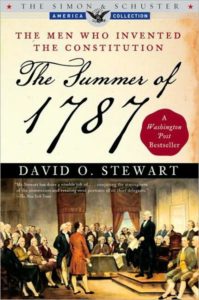
Overview
The Summer of 1787 traces the struggle at the Philadelphia Convention to create the world's first constitutional democracy. Using the delegates' fiery rhetoric, the book explores the conflicts and hard bargaining that invented a government to meet the crises of the not-quite-united states - huge debts, hostile neighbors, armed rebellion, and the very real prospect of dissolving into three nations or more.
It was a desperate balancing act. The people should have power, but could they be trusted? Would a strong central government leave room for the states? Why did they contrive the convoluted electoral college for electing the president? And what of the grinding compromises over slavery, America's original sin? The heroes include the familiar and the unlikely:
• Gouverneur Morris, the one-legged aristocrat who roared out America's first abolitionist speech, then wrote the final draft of the Constitution.
• Ben Franklin, whose gentle wit salved many wounds, and whose compromise resolved the Convention's toughest problem.
• George Mason, the slave-owner whose refusal to sign the Constitution led to the Bill of Rights.
• Scottish immigrant James Wilson, who with haughty John Rutledge of South Carolina remade the Constitution in ways the delegates never expected.
• The incomparable George Washington, whose steadfast leadership was the summer's indispensable glue.
Closeted together in a single room through a sultry Philadelphia summer, the delegates hammered out a government charter that embodied the best of America's dreams, and the worst of America's realities. The making of the Constitution will come alive for you in the pages of this book, and your feelings about how the nation started will never be the same.
Read MoreImpeached
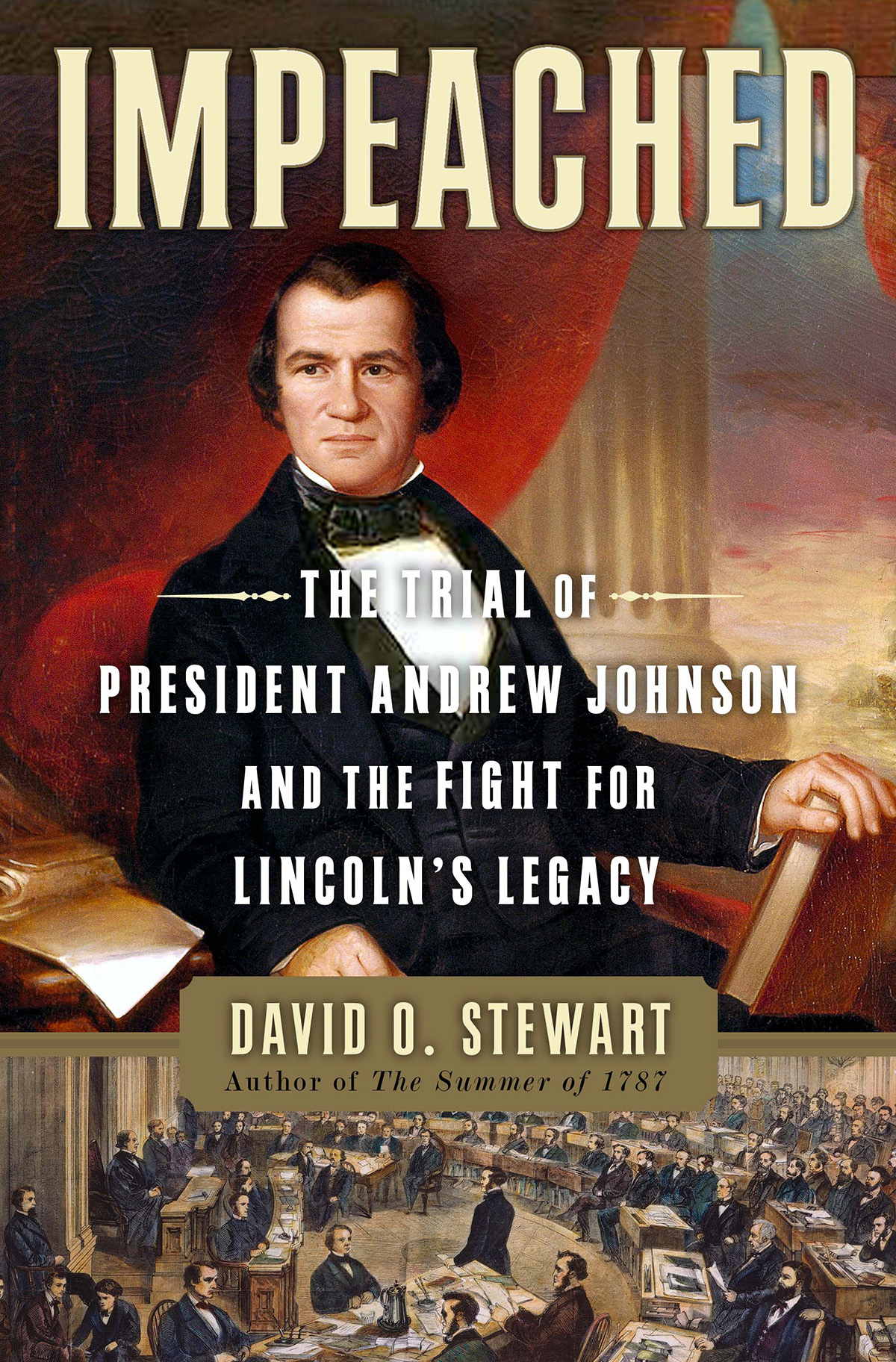
Overview
Impeached traces the explosive impeachment trial of President Andrew Johnson to its roots in the social and political revolutions that rocked the South with the end of slavery and of the Civil War. As president after Lincoln’s assassination, Johnson, a Tennessee Democrat, not only failed to heal the nation’s wounds but rather rubbed them raw, ignoring widespread violence against the freed slaves and encouraging former rebels to resume political control of the Southern states. His high-handed actions were opposed by the equally angry and aggressive Congress, led by Rep. Thaddeus Stevens of Pennsylvania, an ardent foe of slavery who aimed to rebuild American society on principles of equality and fairness.
The titanic collision between Congress and the president was diverted, through the constitutional impeachment process, into a legalistic dispute over whether Johnson could fire his own Secretary of War. Inept lawyering by Johnson’s prosecutors, combined with political deals, saved Johnson by a single vote.
Impeached challenges the traditional version of this pivotal moment in American history, which portrays Johnson as pursuing Lincoln’s legacy by showing leniency to the former rebels. Impeached shows the compelling reasons to remove this unfortunate president from office, reveals the corrupt bargains that saved Johnson’s job by a single senator’s vote, and credits Johnson’s prosecutors with seeking to remake the nation to accord with the ideals that Lincoln championed and that the Civil War was fought for.
Read MoreAmerican Emperor
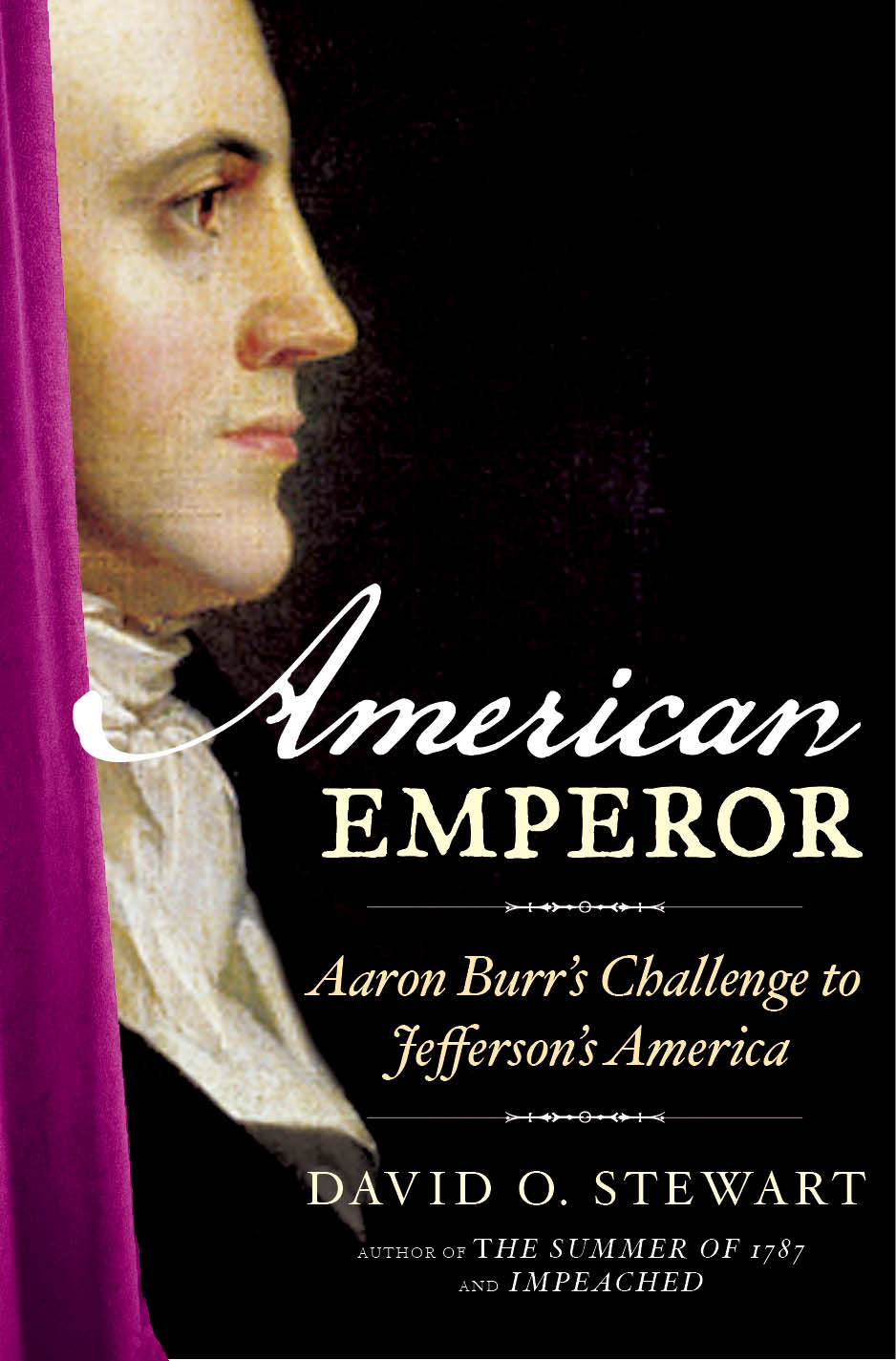
Overview
This vivid biography portrays Aaron Burr, the third vice president, as a daring and perhaps deluded figure who shook the nation’s foundations in its earliest, most vulnerable decades.
In 1805, the United States was not twenty years old, a largely unformed infant. The government consisted of a few hundred people. The immense frontier swallowed up a tiny army of 3,300 soldiers. Following the Louisiana Purchase, no one even knew where the nation’s western border lay. Secessionist sentiment flared in New England and beyond the Appalachians.
Burr had challenged Jefferson, his own running mate, in the presidential election of 1800. Indicted for murder in the dueling death of Alexander Hamilton in 1804, he dreamt huge dreams. He imagined an insurrection in New Orleans, a private invasion of Spanish Mexico and Florida, and a great empire rising on the Gulf of Mexico, which would swell when America’s Western lands seceded from the Union. For two years, Burr pursued this audacious dream, enlisting support from the General-in-Chief of the Army, a paid agent of the Spanish king, and from other Western leaders, including Andrew Jackson. When the army chief double-crossed Burr, Jefferson finally roused himself and ordered Burr prosecuted for treason.
The trial featured the nation’s finest lawyers before the greatest judge in our history, Chief Justice John Marshall, Jefferson’s distant cousin and determined adversary. The case became a contest over the nation’s identity: Should individual rights be sacrificed to punish a political apostate who challenged the nation’s very existence? In a revealing reversal of political philosophies, Jefferson championed government power over individual rights, while Marshall shielded the nation’s most notorious defendant. By concealing evidence, appealing to the rule of law, and exploiting the weaknesses of the government’s case, Burr won his freedom.
Afterwards Burr left for Europe to pursue an equally outrageous scheme to liberate Spain’s American colonies. Finding no European sponsor during four nomadic years, he returned to America and lived to an unrepentant old age.
American Emperor’s vivid account of Burr’s tumultuous life offers a rare and eye-opening description of the brand new nation struggling to define itself.
Read MoreMadison’s Gift
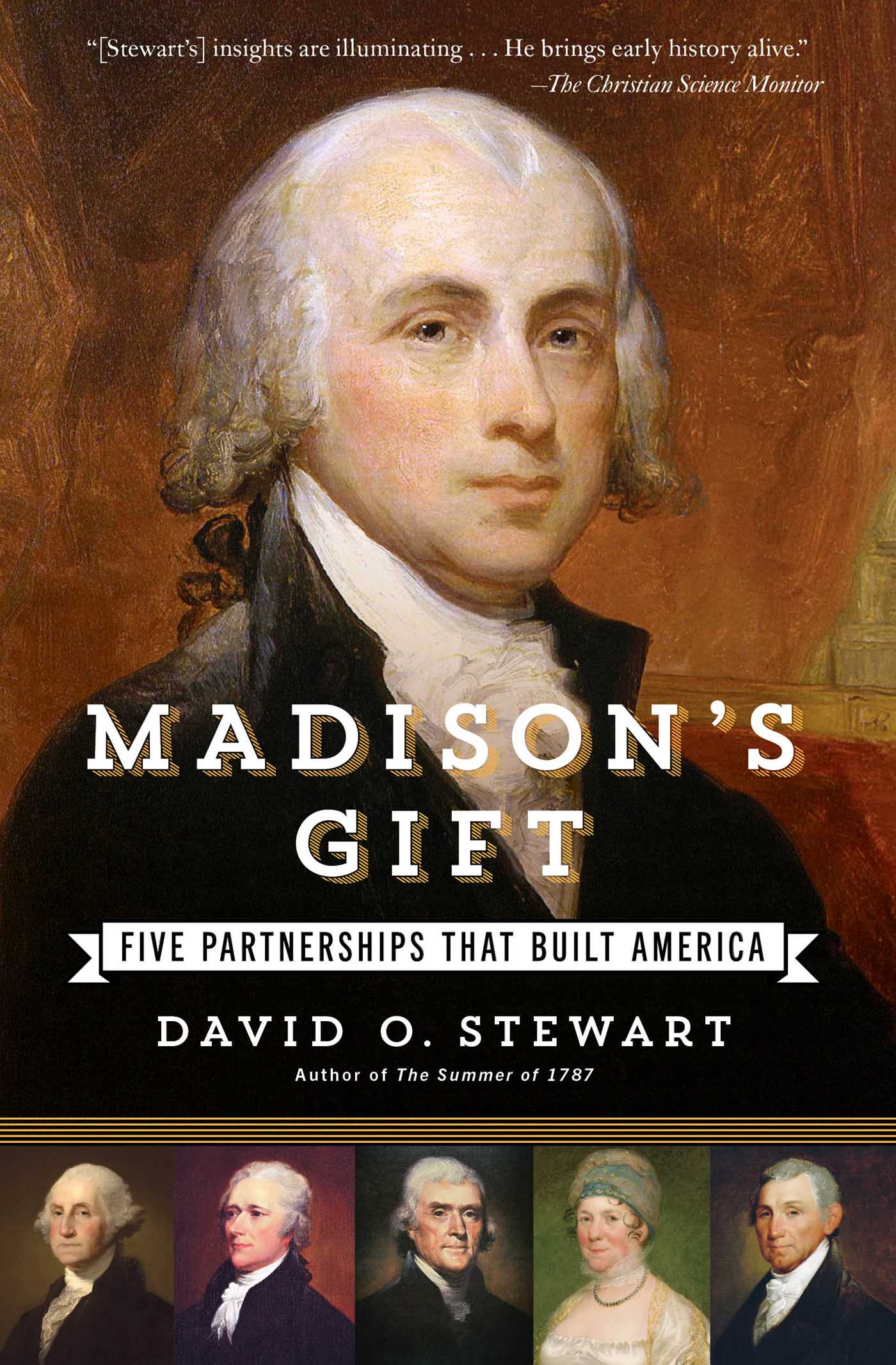
Overview
#1 Amazon Bestseller!
Historian David O. Stewart restores James Madison, sometimes overshadowed by his fellow Founders, to his proper place as the most significant framer of the new nation.
Short, plain, balding, neither soldier nor orator, low on charisma and high on intelligence, Madison cared about achieving results, not taking credit. To reach his lifelong goal of a self-governing constitutional republic, he blended his talents with those of his most talented contemporaries. It was Madison who invoked the influence of his patron George Washington to lead the drive for the Constitutional Convention and an effective new government; Madison who wrote the Federalist Papers with Alexander Hamilton to secure the Constitution’s ratification; Madison who corrected the greatest blunder of the Constitution by drafting and securing passage of the Bill of Rights with Washington’s essential support; Madison who worked with Thomas Jefferson to found the nation’s first political party and transform the nation’s politics; Madison who drew on the martial virtues of James Monroe to guide the new nation through its first, unsteady war in 1812, and who handed the reins of government to this last of the Founders, his old friend and sometime rival. No American leader has matched Madison’s gift for joining with brilliant and diverse personalities in pursuit of great achievements.
Madison’s most important partnership was with his charismatic wife, Dolley. With unfailing charm and sure political sense, she proved an invaluable asset both to the career of her soft-spoken mate and to a nation struggling for its republican identity. Their partnership was a love story that sustained Madison through his political rise, his presidency, and his fruitful retirement.
Read MoreGeorge Washington: The Political Rise of America’s Founding Father
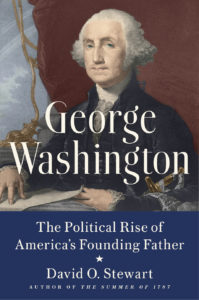
A fascinating and illuminating account of how George Washington became the single most dominant force in the creation of the United States of America, from award-winning author David O. Stewart
Washington's rise constitutes one of the greatest self-reinventions in history. In his midtwenties, this third son of a modest Virginia planter had ruined his own military career thanks to an outrageous ego. But by his midforties, that headstrong, unwise young man had evolved into an unassailable leader chosen as the commander in chief of the fledgling Continental Army. By his midfifties, he was unanimously elected the nation's first president. How did Washington emerge from the wilderness to become the central founder of the United States of America?
In this remarkable new portrait, award-winning historian David O. Stewart unveils the political education that made Washington a master politician—and America's most essential leader. From Virginia's House of Burgesses, where Washington learned the craft and timing of a practicing politician, to his management of local government as a justice of the Fairfax County Court to his eventual role in the Second Continental Congress and his grueling generalship in the American Revolution, Washington perfected the art of governing and service, earned trust, and built bridges. The lessons in leadership he absorbed along the way would be invaluable during the early years of the republic as he fought to unify the new nation.
- Winner of the 2022 Book Award of the Colonial Dames of America, view here.
- Winner of the 2021 History Prize of the Society of the Cincinnati, New Jersey.
- Finalist, 2022 George Washington Prize of Mount Vernon and Gilder-Lehrman Institute, here.
- Featured at the National Book Festival, 22 September 2021, watch session here.
- Winner of 2002 George Washington Memorial Award of the G. Washington Masonic National Memorial Ass'n.